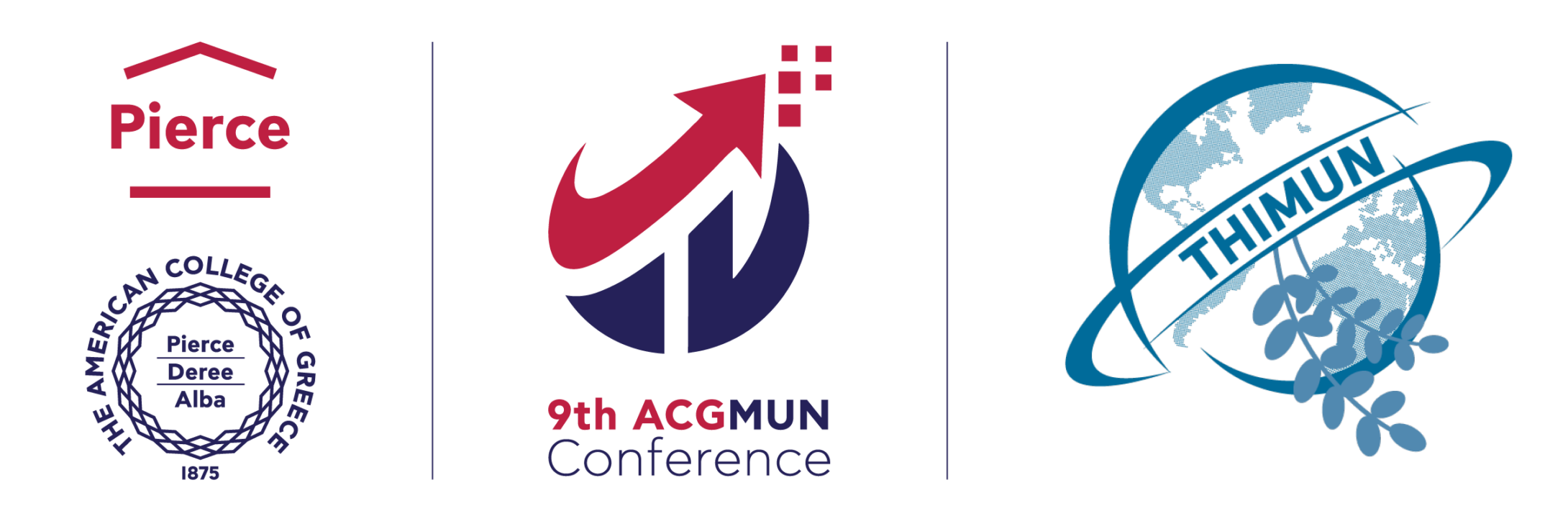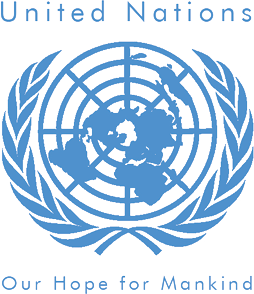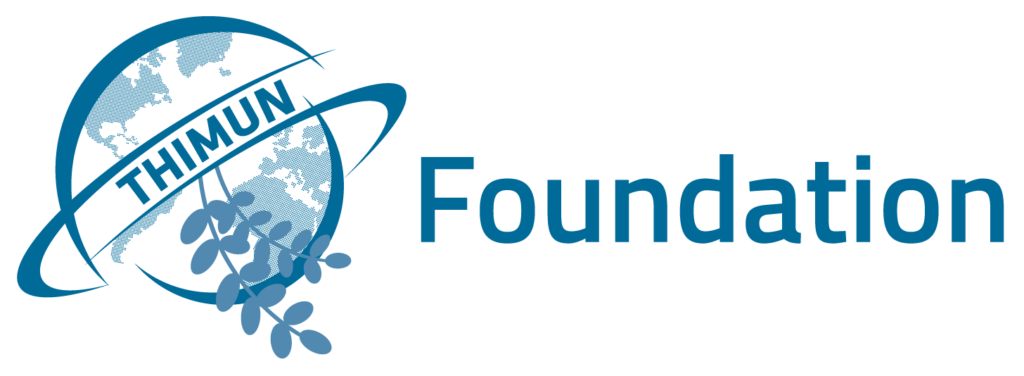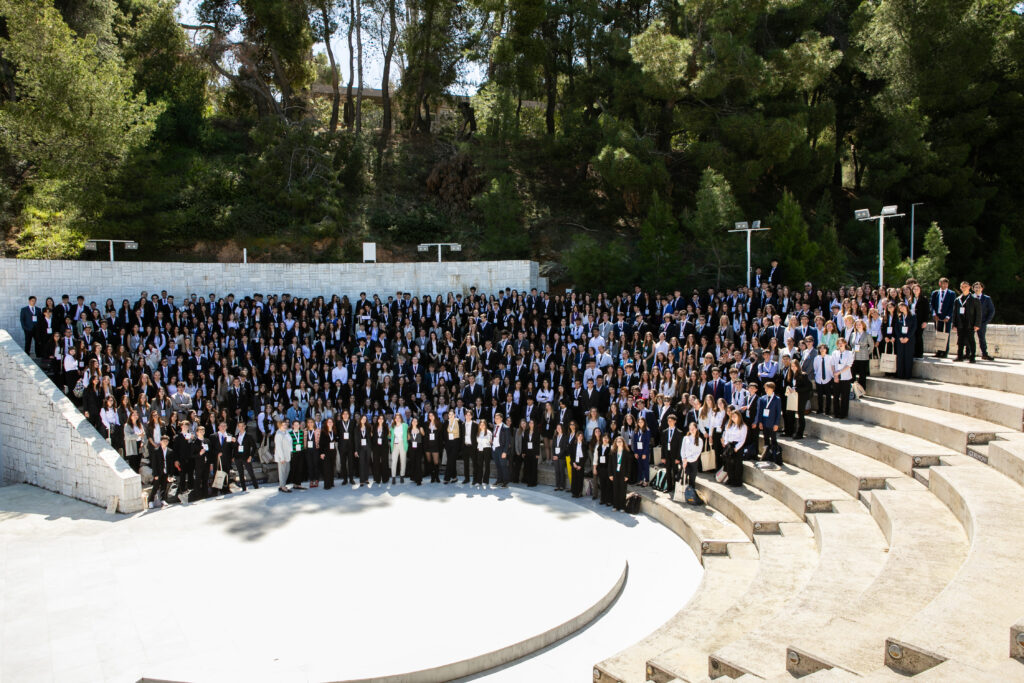General Assembly Committees
Disarmament & International Security Committee (GA1) ◍ ◍ ◍ ◍ ◌
The Disarmament and International Committee of the United Nations is responsible for global security, peace efforts, arms control and disarmament. It recommends actions to reduce weapons, prevent conflicts and enhance stability among nations. It is an advanced committee.
Economic & Financial Committee (GA2) ◍ ◍ ◍ ◌ ◌
The Economic and Financial committee primarily addresses global economic issues, international economic cooperation and sustainable development. Additionally, it deals with international trade, and financial policies. Its discussions and recommendations aim to foster economic stability and development.
Social, Humanitarian & Cultural Committee (GA3) ◍ ◍ ◌ ◌ ◌
The Social, Humanitarian and Cultural committee works to advance gender equality, human rights and social development. It additionally examines matters related to children’s rights such as child labour, protection from exploitation and rights to education.
Special Political & Decolonization Committee (GA4) ◍ ◍ ◍ ◍ ◌
The Special Political and Decolonization Committee focuses on political challenges related to decolonization, self – determination for nations and issues regarding peacekeeping missions. It aims to promote global peace and sovereignty. It’s an intermediate committee.
Legal Committee (GA6) ◍ ◍ ◍ ◌ ◌
The Legal Committee of the General Assembly primarily deals with international legal matters such as the development and codification of international law. Additionally, it is responsible for legal issues related to UN activities and treaties. It plays a crucial role in promoting international peace and cooperation and is an advanced committee.
Specialized Agencies
Environmental Commission (EC) ◍ ◍ ◌ ◌ ◌
The Environmental Commission of the United Nations is responsible for coordinating global environmental efforts, promoting sustainable development and addressing environmental challenges. It deals with issues connected to pollution, climate change and biodiversity loss and is a beginner committee.
Special Conference (SPECON) ◍ ◍ ◌ ◌ ◌
UN’s Special Conferences are convened to address rising global issues, negotiate agreements and foster international cooperation matters such as climate change and disarmament. Their significance lies in their potential to address critical challenges and promote peace, sustainability and cooperation on a global scale.
World Health Organization (WHO) ◍ ◍ ◌ ◌ ◌
The World Health Organisation of the United Nations is a specialized agency plays a crucial role in global public health. It is responsible for providing leadership on international health matters, setting health standards, monitoring and assessing health trends and coordinating emergencies related to health. It’s expertise, guidance and coordination when combating diseases and improving healthcare is crucial. It is a beginner committee.
Youth Assembly (YA) ◍ ◌ ◌ ◌ ◌
The Youth Assembly of the United Nations provides a worldwide platform for young people to engage in discussions related to global issues. Its role includes encouraging youth participation in UN related activities and conversations as well as in UN processes, advocating youth led solutions to global challenges and promoting collaboration between youngsters that aim at creating positive change on a global scale.
UN Councils
Human Rights Council (HRC) ◍ ◍ ◌ ◌ ◌
The Human Rights Council of the United Nations is primarily responsible for advancing and safeguarding human rights on a global scale. Its conducts assessments, investigate violations and provides recommendations to address human rights concerns within member states.
Economic & Social Council (ECOSOC) ◍ ◍ ◍ ◌ ◌
The purpose of the Economic and Social Council of the United Nations is to promote economic and social cooperation and development. It serves as a forum for discussion and coordination for global economic and social issues. Additionally, it plays a key role in monitoring and implementing sustainable development goals and fostering partnership between governments, NGO’s and other stakeholders.
Security Council (SC) ◍ ◍ ◍ ◍ ◍
The Security Council of the United Nations consists of 15 member states 5 of which are permanent members with veto power. It’s primary goal is to maintain international peace and security, prevent conflicts, authorise peacekeeping and impose sanction when necessary. Its significance lies on its role to serve as a platform for diplomatic effort to resolve conflicts through negotiation and mediation.
UN Courts
International Court of Justice (ICJ) ◍ ◍ ◍ ◍ ◌
The International Court of Justice of the United Nations serves as the principle judicial organ. It is responsible for settling legal disputes between states and provide advisory opinions on legal questions referred by organs of the United Nations and by specialised agencies. Additionally, it helps uphold international law and promote peaceful dispute resolution.




